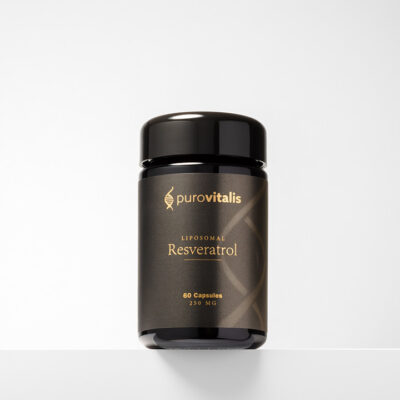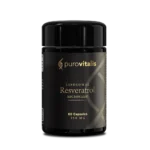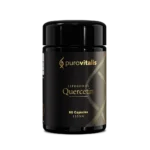
table of contents
- What is the microbiome?
- How food affects the microbiome
- The “Naughty List” – Foods often linked to gut imbalance
- How to fix the microbiome
Do you remember being a teenager and eating almost anything—pizza, chocolate, fried food—without giving it a second thought? Back then, your body often seemed invincible. Science suggests that this might not be a coincidence: our microbiome develops throughout life, starting simple in infancy, becoming more complex and resilient during adolescence, and then slowly shifting as we age. Some researchers even describe this period of youth as a kind of “peak moment” for microbial diversity[1].
In this blog, we’ll look at what the microbiome actually is, how it changes with age, the ways food can support or disrupt it, and practical steps you can take to keep it strong for the years ahead.
What is the microbiome?
The microbiome is the vast community of trillions of microorganisms—bacteria, fungi, and viruses—that live in and on us. Most reside in the gut, but they are also found on the skin, in the mouth, lungs, and nasal passages. Far from being harmful, many of these microbes are essential allies: they help us digest food, produce vitamins, regulate inflammation, and keep our immune system in balance[2].
But their role goes far beyond digestion. The microbiome influences metabolism, immunity, inflammation, and even the way we age. In other words, it is a central player in our long-term health and well-being.
The microbiome
The collective community of microorganisms that live inside and on the human body, supporting digestion, immunity, and overall health.
How food affects the microbiome
Every meal is a message to your microbes. Some foods nourish beneficial bacteria, while others encourage imbalances that can lead to digestive problems, inflammation, or reduced microbial diversity.
Your microbiome is highly dynamic, which means it changes depending on what you eat on a daily basis. Diets rich in fiber, plants, and fermented foods often support a diverse and resilient gut ecosystem. In contrast, diets dominated by refined sugar, unhealthy fats, or processed products can reduce microbial diversity and weaken your gut’s natural defenses. Over time, this can affect not only digestion but also immunity, energy levels, and even mood.
The “Naughty list”
Foods often linked to gut imbalance
Not all foods are created equal for your gut microbes. While some provide fuel and support balance, others work against your microbiome. Foods that are heavily processed, high in added sugars, or loaded with artificial additives tend to harm beneficial bacteria and allow less friendly species to thrive. These dietary patterns are often connected to inflammation, digestive discomfort, and a less diverse gut flora. Lets have a look at the foods we should try to minimise to keep balance in our gut.
Ultra-processed foods (chips, packaged snacks, sugary cereals)
Have you ever looked at the ingredient list of your favorite snack and noticed a long list of numbers and chemical names? That’s a good sign it’s ultra-processed. These foods are often low in fiber and packed with additives, which means they don’t provide the fuel your beneficial gut bacteria need[3].
Recent reviews show that diets high in ultra-processed foods are linked to reduced microbial diversity, gut barrier dysfunction, and low-grade inflammation[4]. Additives like emulsifiers (e.g., E433, E466) may even disrupt the mucus layer that protects the intestine, creating conditions for imbalance[5].
Our tip
Spot ultra-processed food by scanning the ingredient list. If it contains many additives or “E-numbers” it’s usually ultra-processed. A long list of 5–6+ ingredients with chemical names is another red flag.
Refined sugars and sweetened drinks
Do you ever grab a “healthy” snack bar or flavored yogurt, only to find out later it’s packed with sugar? High intake of refined sugar can overfeed certain bacteria and fungi, while starving the beneficial ones that thrive on fiber[6]. This imbalance encourages inflammation, metabolic stress, and reduced microbial diversity[7].
Recent reviews link diets rich in added sugars and sweetened beverages with negative shifts in gut microbiota composition, including depletion of Bifidobacteria and Faecalibacterium prausnitzii—two species known for their anti-inflammatory role[8]. Over time, this can increase the risk of obesity, type 2 diabetes, and other metabolic diseases.
Our tip
Always check the label. Sugar often hides under different names—like glucose syrup, maltose, or high-fructose corn syrup. If sugar appears among the first three ingredients, the product is likely high in added sugar, even if it doesn’t taste very sweet.
Related: Glucose Goddess hacks: Master blood sugar for health and longevity.
Red and processed meats
Do you enjoy a steak or a quick deli sandwich? Red and processed meats can be part of many diets, but high consumption has been associated with less favorable gut microbial profiles. Excess intake may promote the growth of bacteria that produce metabolites such as trimethylamine N-oxide (TMAO), which has been linked to cardiovascular disease[9]. At the same time, some beneficial bacteria—including Bifidobacteria—may decrease when red meat intake is consistently high[10].
Our tip
If you eat meat, aim for moderation. Prioritize fresh cuts over processed products like sausages, bacon, and deli meats, and combine meat meals with fiber-rich sides to support microbial balance.
Fried and fast food
Crispy fried chicken or burgers on the go may be tempting, but frequent consumption of fried and fast foods is linked to shifts in the gut microbiome. These foods are typically high in refined fats, salt, and additives, all of which can promote microbial instability and reduce species diversity[11]. Diets rich in fried food have also been associated with inflammation and metabolic dysfunction in human studies[12].
Our tip
Swap deep-frying for oven-baking or air-frying. Pair fast-food meals with vegetables or salads to reduce the strain on your microbiome.
Excessive alcohol
A glass of wine may be harmless for most, but heavy and chronic alcohol intake damages the gut lining, alters microbial composition, and increases intestinal permeability—the so-called “leaky gut” effect[13]. This disruption can favor the overgrowth of harmful bacteria while suppressing beneficial ones, increasing the risk of liver and metabolic disease[14].
Our tip
Enjoy alcohol in moderation, and always hydrate with water alongside. Supporting your diet with fiber and probiotic-rich foods can help protect your gut lining.
Foods in the “gray zone” (spicy food, chocolate, whole wheat)
Is spicy food bad for your gut? Or is dark chocolate a health booster? The answer isn’t simple. These foods fall into a “gray zone” where responses vary widely between individuals. For example, spicy food may cause discomfort in some people with irritable bowel tendencies but be well tolerated in others. Dark chocolate contains polyphenols that may even support beneficial bacteria, but it can also cause digestive upset in sensitive individuals[15]. Similarly, whole wheat provides fiber but may trigger bloating in people with gluten or FODMAP sensitivity[16].
Definition of FODMAP
FODMAPs are certain types of carbohydrates found in foods like wheat, beans, dairy, and some fruits. For people with sensitive guts, they can be harder to digest and may cause bloating or discomfort.
Our tip
Listen to your body in the end you know best. If you experience bloating, discomfort, or changes in digestion after these foods, try reducing them or reintroducing them slowly to test your tolerance.
After looking at the foods that can throw your microbiome off balance, it helps to remember that small choices in the supermarket can make a big difference. If you want to do your microbiome a favor next time you go grocery shopping, keep these simple checks in mind:
- Check for E-numbers or long ingredient lists → often ultra-processed.
- Watch for hidden sugars in “healthy” products like oatmeal.
- Be cautious with sugar-free/diet claims → often sweeteners, e.g. in diet soda.
- Choose fresh cuts over heavily processed meats.
- Replace fried with baked or air-fried alternatives.
How to fix the microbiome
The microbiome is dynamic. Even if it has been disrupted by diet, stress, or other lifestyle factors, it luckily has the ability to recover when given the right support. Research points to three main areas—diet, lifestyle, and targeted supplements—that can help restore and maintain microbial balance.
1. Dietary strategies
Eat more fiber
Fiber is the main fuel for beneficial bacteria. When microbes ferment fiber, they produce short-chain fatty acids (SCFAs) like butyrate, which strengthen the gut lining and reduce inflammation. Whole foods such as vegetables, legumes, fruits, and oats are rich in these fibers[17].
Include fermented foods
Yogurt, kefir, kimchi, sauerkraut, and kombucha deliver live microbes that support diversity. A 2021 study in Cell showed that fermented foods significantly increased microbiome diversity and reduced inflammation in adults[18].
Diversify your plate
The American Gut Project found that people who eat 30 or more different plant foods per week have a more diverse microbiome than those eating fewer than 10[19].
Mediterranean-style diet
Rich in vegetables, legumes, olive oil, and fish, this diet has been linked to higher levels of Faecalibacterium prausnitzii, a bacterium known for its anti-inflammatory effects[20].
2. Lifestyle factors
Prioritize sleep
Poor sleep and irregular eating patterns can disturb the gut’s circadian rhythm and microbial balance[21].
Manage stress
Chronic stress impacts the gut-brain axis, which in turn reduces beneficial bacteria and promotes imbalance[22].
Move your body
Regular physical activity is associated with higher microbial diversity and an increase in butyrate-producing species, both important for gut health[23].
Read much more about all three topics here: Sleep for longevity, How stress and cortisol impact aging, Exercises for longevity.
3. Supplements
Diet and lifestyle are the foundation, but certain supplements have also shown measurable effects on the microbiome:
Resveratrol
Research suggests resveratrol may increase microbial diversity, support the intestinal barrier, and promote beneficial bacteria[24].
Berberine
Has been shown to modulate the gut microbiota, enrich butyrate-producing species, and reduce inflammation. Early human studies also suggest metabolic benefits[25].
Quercetin
A flavonoid that appears to promote beneficial bacteria such as Bifidobacterium and Lactobacillus while suppressing harmful strains in preclinical studies[26].
Read also this related blog: The connection between gut health and aging
Trust your gut
The microbiome touches almost every aspect of our health—from digestion and immunity to metabolism and even how we age. Science shows that a plant-rich diet, fermented foods, quality sleep, stress balance, and regular movement all help create a resilient microbial ecosystem. Supplements like resveratrol, berberine, and quercetin may offer additional support.
Perhaps this is also the reason behind the old saying “trust your gut.” Our gut really does send signals—both to our brain and to the rest of the body. By caring for it, you’re not just improving digestion, but strengthening an invisible ally for long-term health and well-being.
References
- Attia P. The Peter Attia Drive. Episode 283: Gut health & the microbiome: improving and maintaining the microbiome, probiotics, prebiotics, innovative treatments, and more [podcast]. Interview with Colleen Cutcliffe. 2023 Dec 18. Available from: https://peterattiamd.com/colleencutcliffe/
- Kåhrström C.T., Pariente N., Weiss U. Intestinal microbiota in health and disease. Nature. 2016;535:47. doi: 10.1038/535047a.
- Rondinella P, Colica C, Abenavoli L, Della Corte C, Boccuto L, De Lorenzo A, et al. The detrimental impact of ultra-processed foods on the human gut microbiome and gut barrier. Nutrients. 2025;17(5):859. doi:10.3390/nu17050859
- Lane MM, Lotfaliany M, Peacock A, Panagiotopoulos S, Mohebbi M, Ashrafi S, et al. Ultra-processed food exposure and adverse health outcomes: umbrella review of meta-analyses. BMJ. 2024;384:e077310. doi:10.1136/bmj-2023-077310
- Chassaing B, Koren O, Goodrich JK, Poole AC, Srinivasan S, Ley RE, et al. Dietary emulsifiers impact the mouse gut microbiota, promoting colitis and metabolic syndrome. Nature. 2015;519(7541):92–6. doi:10.1038/nature14232
- Zinöcker M, Lindseth IA. The Western diet–microbiome-host interaction and its role in metabolic disease. Nutrients. 2018;10(3):365. doi:10.3390/nu10030365
- Dalile B, Van Oudenhove L, Vervliet B, Verbeke K. The role of short-chain fatty acids in microbiota–gut–brain communication. Nat Rev Gastroenterol Hepatol. 2019;16(8):461–78. doi:10.1038/s41575-019-0157-3
- Ruiz-Ojeda FJ, Plaza-Díaz J, Sáez-Lara MJ, Gil A. Effects of sweeteners on the gut microbiota: a review of experimental studies and clinical trials. Adv Nutr. 2019;10(suppl_1):S31–48. doi:10.1093/advances/nmy037
- Koeth RA, Wang Z, Levison BS, Buffa JA, Org E, Sheehy BT, et al. Intestinal microbiota metabolism of l-carnitine, a nutrient in red meat, promotes atherosclerosis. Nat Med. 2013;19(5):576–85. doi:10.1038/nm.3145
- David LA, Maurice CF, Carmody RN, Gootenberg DB, Button JE, Wolfe BE, et al. Diet rapidly and reproducibly alters the human gut microbiome. Nature. 2014;505(7484):559–63. doi:10.1038/nature12820
- Zinöcker M, Lindseth IA. The Western diet–microbiome-host interaction and its role in metabolic disease. Nutrients. 2018;10(3):365. doi:10.3390/nu10030365
- Martínez Steele E, Baraldi LG, Louzada ML, Moubarac JC, Mozaffarian D, Monteiro CA. Ultra-processed foods and human health: evidence from observational studies. Public Health Nutr. 2016;19(11):2069–82. doi:10.1017/S1368980016001468
- Engen PA, Green SJ, Voigt RM, Forsyth CB, Keshavarzian A. The gastrointestinal microbiome: alcohol effects on the composition of intestinal microbiota. Alcohol Res. 2015;37(2):223–36.
- Leclercq S, Matamoros S, Cani PD, Neyrinck AM, Jamar F, Stärkel P, et al. Intestinal permeability, gut-bacterial dysbiosis, and behavioral markers of alcohol-dependence severity. Proc Natl Acad Sci U S A. 2014;111(42):E4485–93. doi:10.1073/pnas.1413458111
- Martín-Peláez S, Mosele JI, Pizarro N, Farràs M, de la Torre R, Subirana I, et al. Effect of cocoa and red berries on the gut microbiota: a randomized controlled trial. Nutrients. 2017;9(6):649. doi:10.3390/nu9060649
- De Giorgio R, Volta U, Gibson PR. Sensitivity to wheat, gluten and FODMAPs in IBS: facts or fiction? Gut. 2016;65(1):169–78. doi:10.1136/gutjnl-2015-309757
- Vinelli V, Biscotti P, Martini D, Del Bo’ C, Marino M, Meroño T, et al. Effects of Dietary Fibers on Short-Chain Fatty Acids and Gut Microbiota Composition in Healthy Adults: A Systematic Review. Nutrients. 2022;14(13):2559. doi:10.3390/nu14132559
- Wastyk HC, Fragiadakis GK, Perelman D, Dahan D, Merrill BD, Yu FB, et al. Gut-microbiota-targeted diets modulate human immune status. Cell. 2021;184(16):4137–53. doi:10.1016/j.cell.2021.06.019
- McDonald D, Hyde E, Debelius JW, Morton JT, Gonzalez A, Ackermann G, et al. American Gut: an open platform for citizen science microbiome research. mSystems. 2018;3(3):e00031–18. doi:10.1128/mSystems.00031-18
- De Filippis F, Pellegrini N, Vannini L, Jeffery IB, La Storia A, Laghi L, et al. High-level adherence to a Mediterranean diet beneficially impacts the gut microbiota and associated metabolome. Gut. 2016;65(11):1812–21. doi:10.1136/gutjnl-2015-309957
- Bermingham KM, Stensrud S, Asnicar F, Valdes AM, Franks PW, Wolf J, et al. Exploring the relationship between social jetlag with gut microbial composition, diet and cardiometabolic health, in the ZOE PREDICT 1 cohort. Eur J Nutr. 2023;62:3135–47. doi:10.1007/s00394-023-03154-w
- Foster JA, McVey Neufeld KA. Gut-brain axis: how the microbiome influences anxiety and depression. Trends Neurosci. 2013;36(5):305–12. doi:10.1016/j.tins.2013.01.005
- Clarke SF, Murphy EF, O’Sullivan O, Lucey AJ, Humphreys M, Hogan A, et al. Exercise and associated dietary extremes impact on gut microbial diversity. Gut. 2014;63(12):1913–20. doi:10.1136/gutjnl-2013-306541
- Chen ML, Yi L, Zhang Y, Zhou X, Ran L, Yang J, et al. Resveratrol attenuates trimethylamine-N-oxide (TMAO)-induced atherosclerosis by regulating TMAO synthesis and bile acid metabolism via remodeling gut microbiota. mBio. 2016;7(2):e02210–15. doi:10.1128/mBio.02210-15
- Xu JH, Liu XZ, Pan W, Zou DJ. Berberine protects against diet-induced obesity through regulating metabolic endotoxemia and gut hormone levels. Mol Med Rep. 2017;15(5):2765–87. doi:10.3892/mmr.2017.6321
- Etxeberria U, Fernández-Quintela A, Milagro FI, Aguirre L, Martínez JA, Portillo MP. Impact of polyphenols and polyphenol-rich dietary sources on gut microbiota composition. J Agric Food Chem. 2013;61(40):9517–33. doi:10.1021/jf402506c

Liposomal Resveratrol maximum benefits improves sugar levels
Experience the best of resveratrol with Purovitalis liposomal formula. Try it out!















